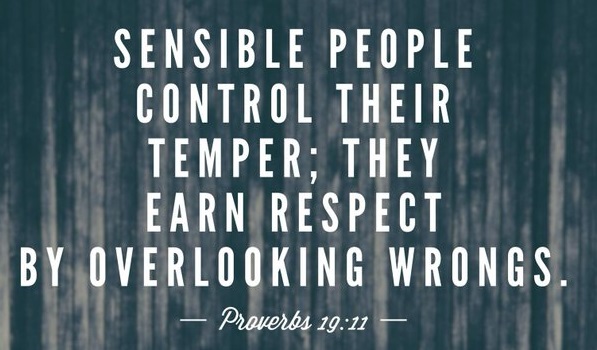
HANDLING OFFENSES
Definition:
Literally Offense is lack of politeness, failure to show regard or respect to others, wounding the feeling or others. It could be a feeling of anger caused by being offended. In sports, the team that has the ball (or puck) and trying to score. Offend: (to take offense); to cause displeasure, anger and resentment or wounded feelings. It could be attributed to insult, affront, and outrage; to hurt feeling or sense of dignity, hurt, disgust, and humiliation or to break laws. Some kinds of offense: Disorderly behavior, disorderly conduct such as molesting, and disquieting. It could be false pretense, intent to defraud and false representation or public nudity or bearing false witness, lying under oath and sedition. “A brother offended is harder to win than a strong city and contentions are like the bars of a castle” (Prov. 18:19).
Human beings are imperfect people and we are prone to offend others knowingly or unknowingly. We want to be accepted, respected, and loved but where we are being picked on, hurt or disrespected, we get offended, angry and resentful or even miserable. Again each of us has expectations, how we want things to happen or to be treated. When things go the other way, we could be offended. We find ourselves changed from the happy and joyful person we were before and begin to feel angry, withdrawn and resentful. We are however responsible to how we react to adverse actions or behaviors. Funny enough, many are offended by the truth and Satan uses offenses to lure us into ugly time of bitterness, resentment, grudge, un-forgiveness and even hatred; causing division among families, friends and even Church members. An offense in our hearts cannot confine itself but easily spills out in our actions. It’s like a good food prepared in the kitchen, its aroma oozes into other rooms and outside the building. The aroma cannot be confined but escapes into the hallway and outside the building that even passersby’s could smell it. When we nurse offense, it blinds us to our own fault and warps our self-perceptions. “Good sense makes one slow to anger and it is his glory to overlook an offense” (Prov. 19:11); “Guard your heart with all diligence for out of it flows the issues of life” (Prov. 4:23).
5 traits of someone who is in bondage of offense
(Erwin W. Lutzer on – When you’ve been wrong): i) Walled in by bitterness: Most bitter people are blind to their wrong doings and build a wall to protect their resentment. Within these built walls are internalized anger, un-forgiveness and mistrust. The walls separate one house or city from another, control what and who is allowed in and goes out; identifies and confirm those ingress and egress, keep away enemies and unexpected visitors. Those allowed into their space would affirm and justify their pain and will not challenge right of bitterness or resentment. Facts are skewed, information is twisted and sometimes reality is ignored in order to justify bitterness, anger and resentment. ii)Blind to personal faults: Those in darkness often are blind to their own personal faults; see the wrongness of others but blind to their own selfish faults (Matt 7:3-4). They manage their pains by magnifying the faults of others and minimizing theirs. Wounded people justify wounding other by means of retaliation; believe to forgive trivialize the offense done to them. So the wound is carefully nurtured and kept fresh day in day out. iii) In search of vengeance: Most people who nurture bitterness have inward pride, arrogance and desire for vengeance (Rom 12:14-17). Any person who holds offense is prone to retaliation and revenge. Grace and forgiveness are considered as unjust and cannot compensate for the offense. A revengeful person is one who is not broken before God (vs. 19). Judith Orloff opines, “Revenge is the desire to get even when someone does you wrong. It reduces you to your worst self, puts you on the same level with those spiteful people you claim to abhor; increases stress and impairs health and immunity. We must resist the predictable lust for revenge and seek to right wrongs more positively.” iv)Bent on destruction: An offended person can turn into a destroyer – a description given to Satan (John 10:10). “Destroyers have many arsenals in their weaponry. Some do their damage by manipulation, others sow discord. Many love to pick fights or to destabilize others with threats or false accusations. When you speak to them they will take everything that is said and twist it a half turn.” Others get their sense of significance from destroying others. v) Given to idolatry: Col 3:5-6 (Jer) That is why you must kill everything in you that belongs only to earthly life: fornication, impurity, guilty passion, evil desires and especially greed,which is the same thing as worshipping a false god. All this sort of behavior makes God angry. (Eph 5:5).1 Sam 15:23 (NIV) For rebellion is like the sin of divination, and arrogance like the evil of idolatry. To nurture vengeance, revenge, bitterness, anger, pride and arrogance in your heart is like the evil of idolatry. Evil thoughts and desires, harboring offense and strife, anything done without love amount to idolatry. (1 Peter4:8; Matt. 24:12)
Dealing with offenses
a) Overlooking – Each time someone offends you: i. Pray for patience (Pro. 19:11); ii) Watch what you say (Isa 53:7); iii) look beyond the situation (Heb 12: 2-3); and iv)be a peace maker(James 3:18); v) Refrain from behavior that offends another (Romans 14:12-13, 21; 1 Cor.10:31-33); vi)Lower your expectation of others (1 Pt. 4:8; 1 Cor. 6:6-7). B) Conform to God’s ways – be bigger than offense and practice forgiveness: i) Love and adhere to the law (Ps 119:165); ii)Give vengeance to God and love your enemy (Rom. 12:19-20); iii) follow the golden rule (Matt 7:12); iv) Christians should not be stumbling block to another; v) Choose to extend compassion and understanding rather than anger and contention; vi) Walk in love for your prayers of faith to be answered (Mark 11:22-26); vii)Leave your gift at the altar and make peace with your brethren (Matt 5:23-24); C) Spiritual maturity: i) Identify one person at a time you’re angry with; ii) Honestly address your feelings with self or someone; iii) Start to evaluate what could’ve caused the person to offend you.; iv) Begin the process to forgive. D) Jesus teaching: – Mathew18:15-21: 1)Go to the one that offended you privately. Don’t broadcast it to others; 1a) Make your approach simply conversational honest, not with anger or blaming; 1b) Rebuke or condemn the offense, not the offender; 1c)Seek to gain the brethren and restore relationship not revenge; 2)If the problem persist, or unresolved, take one or two witnesses with you and repeat the visit; 2a)Bear in mind the goal is not to win but to attempt to restore relationship and save a soul from the wiles of Satan; 3) If the matter still unresolved, take it to the Church for spiritual leadership. Walk in forgiveness and in love by His grace to bring our loved ones to repentance and salvation in Christ Jesus. “Right may not be expedient, it may not be profitable, but it will satisfy your soul. It will give you the kind of protection that bodyguards cannot provide” – Maya Angelou. Love covers all offenses (Pro 17:9)! Love covers a multitude of sin (1 Peter 4:8)!!

